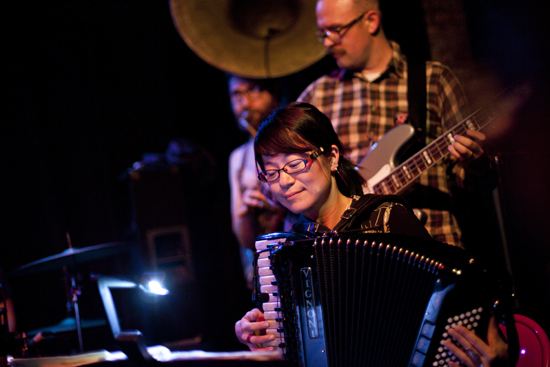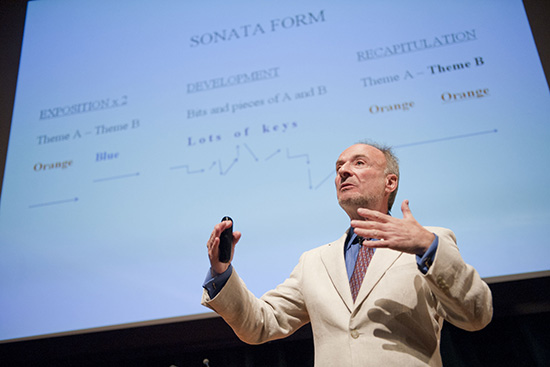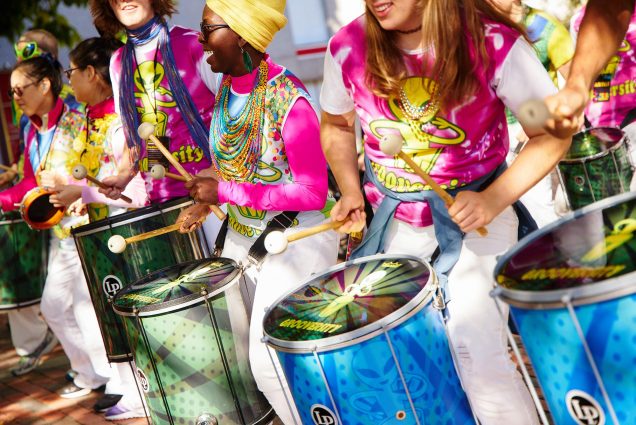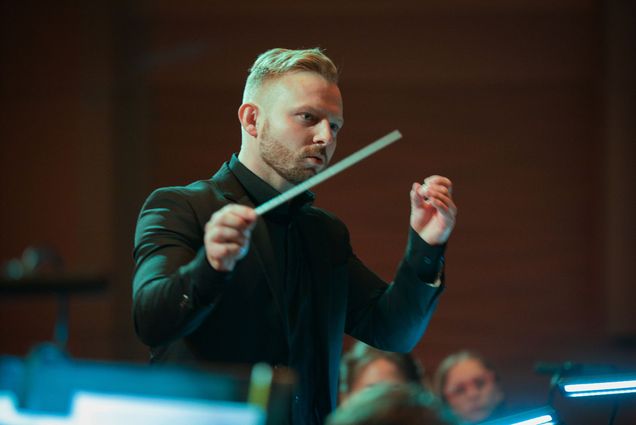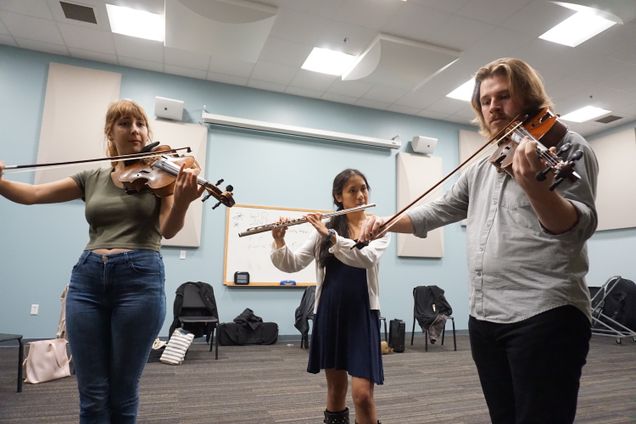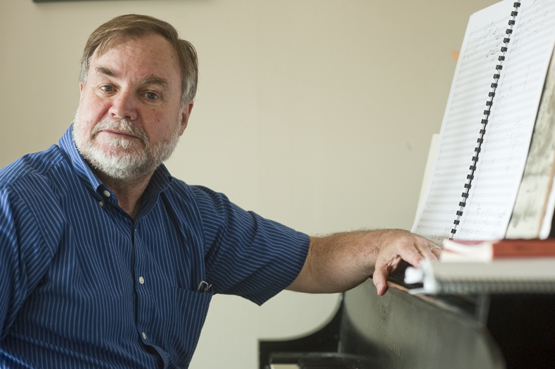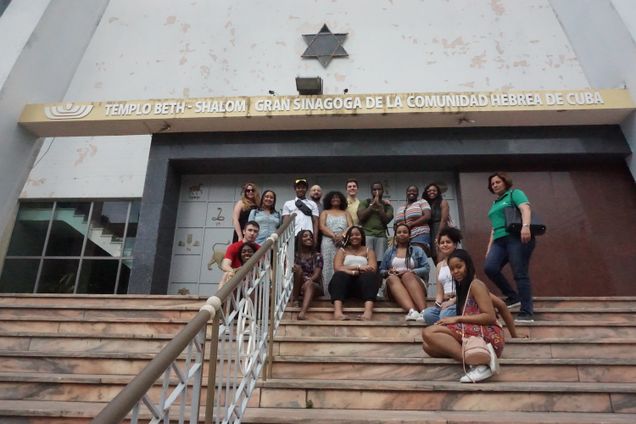Fall 2024
CFA MH 634 (3 units)
M 2:30 – 5:15pm | Prof. David Schulenberg
CFA MH 629 (1 unit)
Sat & Sun (October 26, 26) 10am – 5pm | Prof. Samuel Bradley
Gardano’s publication of salmi spezzati “Di Adriano et di Jachet” in 1550 shows the first maturity of the nascent style of polychoral compositions. Where does this style come from? Is Willaert adopting the technique from other composers, possibly active in the Veneto in the 1530s? This minicourse will explore various interrelated questions, including genre (early polychoral pieces are commonly settings of Psalm texts), sources, and physical spacing of choirs. Compositional questions will also be considered, especially relating to Franco-Flemish pieces before 1530 that begin to show aspects like the impermanent division of forces into sub-ensembles (like Josquin’s Praeter rerum seriem) or the use of canon to achieve large scoring (like Mouton’s Nesciens mater). Some issues that conductors face will also be dealt with, such as sources that preclude the physical separation of the ensembles, idiosyncratic use of clef combinations, and the possible inclusion of instruments. The early polychoral rep presents a fascinating cross-section of compositional and performance issues ca. 1550, ones with long-lasting effects on the development of seventeenth-century music across Europe.
CFA MH 670 (3 units)
M 2:30 – 5:15pm | Prof. Jason McCool
Few recent artworks have grabbed hold of the American public consciousness like Hamilton: An American Musical. Lin-Manuel Miranda’s show is deeply rooted in the conventions of the American musical theater, which since the mid-nineteenth century has been a site for exploring racial representation, cultural exchange, and national identity. Fueled by the vibrant musical language of hip hop, rooted in Black resistance, Hamilton met and reflected a volatile moment of racial reckoning in America, and continues to pick up new meanings in 2024. In this course, students will examine the political, cultural, and musical resonances of Hamilton within these rich historical contexts.
CFA MH 681 (4 units)
Th 1:30 – 3:15pm | Prof. Joshua Fineberg
Overview of a cross-section of contemporary composers, and trends in music. Focus on composers and places that have become major hubs of compositional activity and ideas. Composers of many different nationalities and aesthetic orientations will be studied.
CFA MH 620 (3 units)
Tu,Th 2 – 3:15 pm | Prof. Victor Coehlo
This course will use original sources, a range of recordings, musicological scholarship, and performer testimonials to examine issues in early music performance through a series of case studies from ca. 1600 to around 1900. We will look at the pertinent scholarship involved in preparing performances, the controversies that arise, and possible solutions. In dealing with music before 1600, issues of instrumentation, notation, ornamentation, and context are both complicated and crucial, and we will examine the relevant scholarship and recordings. After 1800, performance issues can be just as difficult to confirm. One of the goals of the course is to introduce you to the value of using original sources and the many issues – execution, context, flexibility, tempo and other markings and choice of instrument – that arise from them, so that your own performances take into account the various historical issues that are critical for performing ¬– and teaching ¬– this repertoire. The seminar-style course will be based around weekly assignments, student presentations, and classroom discussion.
CFA MH 671 (2 units)
Tu 9:00 – 10:45am | Prof. Samuel Bradley
Primary musical sources, historical treatises, and secondary sources, will be used to develop an understanding of various performance practice issues. Students will discuss the merits of so-called authentic or historical performance, and arrive at philosophical and practical approaches to performing music from its earliest notations to the early Baroque and beyond.
CFA MH 720 (3 units) / MH 820 (4 units)
F 11am – 2:15pm | Prof. Michael Birenbaum Quintero
This course provides an overview of the historical development of the disciplines, explores research techniques, and introduces influential theoretical perspectives, including: empiricism, psychology, criticism, representation, gender, and globalization.
CFA MH 771 (3 units) / MH 871 (4 units)
Tu 3:30 – 6:15pm | Prof. Duncan Reehl
This course surveys recent award-winning monographs in musicology, ethnomusicology, and sound studies published in recent years. Each week, we will read one monograph that members of the Society for Ethnomusicology (SEM) and American Musicological Society (AMS) selected for prizes. The literature will touch on sound and music practices from around the globe, past and present, through ethnographic and historical musicological methodologies.
CFA MH 563 (0.5-4 units)
Th 6:30 – 9:15pm | Prof. Michael Birenbaum Quintero
This performance-based course explores salsa music, its roots and its multiple forms. The repertoire may include Afro-Cuban traditional and religious drumming (rumba, güiro and batá), Cuban peasant music (changüí), Puerto Rican traditional music (jíbaro, bomba, and plena), other musics of the Spanish Caribbean (merengue, cumbia, bachata) Latin popular music (son, danzón, mambo, bolero, charanga, chachachá), and multiple salsa variants (salsa dura, boogaloo, songo). Musical focuses will include clave timeline sense, tumbao rhythmic lock and variation, and principles of in-clave improvisation.
CFA MH 610 (3 units)
T 12:30-3:15pm | Prof. Jason McCool
This course provides students with the tools to write about music across genres. Relying on existing examples, from various historical periods, of program notes, album liner notes, concert and album reviews, and academic, creative, and journalistic writing about music, students will learn the conventions of these different formats of musical writing and hone their own writing skills in order to write about music in the ways necessitated by their professional and personal goals.
Spring 2025
CFA MH 609 (3 units)
Tu, Th 12:30 – 1:45pm | Prof. Leland Clarke
Examines how Spirituals have served as essential touch points for all styles of African-American music, ranging from gospel to classical, and are even frequently samples in hip-hop. Students will study how African American classical composers, including Florence Price, visual artist Aaron David, choreographer Alvin Ailey and American novelist Toni Morrison have utilized spirituals as reference material through direct quotations, themes, variations and performances. By focusing on this musical expression and the strength of human spirit expressed through this music, students will learn how enslaved peoples maintained their dignity, resisted the dehumanizing impact of slavery, and fought to preserve key cultural and linguistic elements even in the midst of the horrible oppression of slavery. Finally, students will examine why Spirituals have played a significant role as vehicles for protest at intermittent points during the twentieth and early twenty-first centuries around the world including Russia, Eastern Europe, China and South Africa. Some of today’s well-known pop artists continue to draw on the spirituals tradition in the creation of new protest songs. Examples include Bob Marley’s “Redemption Song” and Bill Bragg’s “Sing their souls back home.”
CFA MH 561 (0.5 – 4 units)
Th 6:30 – 9:15pm | Prof. Sandy Pérez
Taught by world renowned Cuban master drummer Sandy Pérez, this class engages with the intricate sacred and secular percussion music of Cuba. Genres treated include rumba, batá, comparsa, güiro, bembé, iyesá, arará, and/or cajón.
CFA MH 761 (3 units) / MH 861 (4 units)
W 2:30 – 5:15pm | Prof. Brita Heimarck
This course will involve in-depth reading and discussion of key areas of scholarship: music and politics, music and gender, music and religion, music and identity, and other useful paradigms. This course will broaden and deepen the intellectual horizons of graduate students in ethnomusicology and other interested graduate students.
CFA MH 563E (1 unit)
Prof. Michael Birenbaum Quintero
This course will be held in Havana, Cuba over Spring Break, as well as four Wednesday evenings over the course of the semester. Students will explore Afro-Cuban music, art, and religion by engaging directly with Cuban artists, academics, and citizens. This opportunity provides a deeper understanding of the local and transnational processes that shape Cuban society and Afro-Cuban experience in particular.
CFA MH 629 (1 unit)
Sat & Sun 10am – 5pm | Prof. Samuel Bradley
Mini-course offered by the Center for Early Music Studies. Taught by eminent figures in the field of early music, this course is an intensive, laboratory-style immersion in early music scholarship and performance on selected topics, composers, and repertories, covering vocal and instrumental styles from the Middle Ages to the end of the 18th century.
CFA MH 771 (3 units) / MH 871 (4 units)
Tu 12:30 – 3:15pm | Prof. Michael Birenbaum Quintero
Presents a set of theoretical approaches from outside ethnomusicology and offers ways to apply them. Students will pick a single research topic and trace it using these theoretical areas, writing five mini-papers over the course of the semester. Topics for Spring 2025 will include: sound studies, modernity/decoloniality, cultural geography, mimesis, and the ontological turn.
CFA MH 633 (3 units)
M 2:30 – 5:15pm | Prof. David Schulenberg
This course will explore major instrumental and vocal works by the two most famous composers of the late Baroque: Bach and Handel. The course begins by considering the cultural context of these two musicians in late-seventeenth-century Europe, briefly examining selections by older contemporaries such as Lully, Buxtehude, and Alessandro Scarlatti. After surveying the biographies of the two composers, the course proceeds to examples by each of the major genres of the day, including keyboard music, chamber music, and sacred and secular vocal music. Works studied include Bach’s Well-Tempered Clavier and B-Minor Mass, Handel’s Giulio Cesare and Messiah, and flute and violin sonatas by both composers. In addition to analysis of scores, the course includes an introduction to Bach and Handel research as well as issues of historical performance practice.
CFA MH 651 (3 units)
TH 12:30 – 3:15pm | Prof. Duncan Reehl
This course provides an introduction to musical socio-cultural formations in the continent of Asia, as well as how Asia, as a historical and cultural construct, is articulated and imagined in musical practice. The human geography that this course surveys stretches from the Pacific Ocean in the East, Indian Ocean in the South, and the Arctic Ocean in the North, to the conventional border of the Suez Canal and Caucus Mountains in the West. Rejecting an area-studies approach that imagines the continent as an aggregation of nation-states, and instead emphasizing intercultural and interethnic musical relations, this course emphasizes flows of music through terrestrial and oceanic trading routes. Special attention will be given to religious musics, court musics, vernacular folk musics, contemporary popular musics, and contemporary art musics (inclusive of but not limited to “Western classical”).
CFA MH 613 (3 units)
W 2:30 – 5:15pm | Prof. Duncan Reehl
This course centers a musical, anthropological approach to questions of how media and technology affect social life through a survey of influential and contemporary scholarship. It will consider themes such as the relationship between the human and the machine, performance technique and technical artifacts, media and perception, as well as the influence of recording technology and industry on musical socio-cultural formation. Students will consider mainstream historiography of music technology, as well as alternative ways of understanding relations between humans, technical artifacts, and media ecosystems that come from musical, anthropological, and philosophical research.
CFA MH 635 (3 units)
W 12:30 – 3:15pm
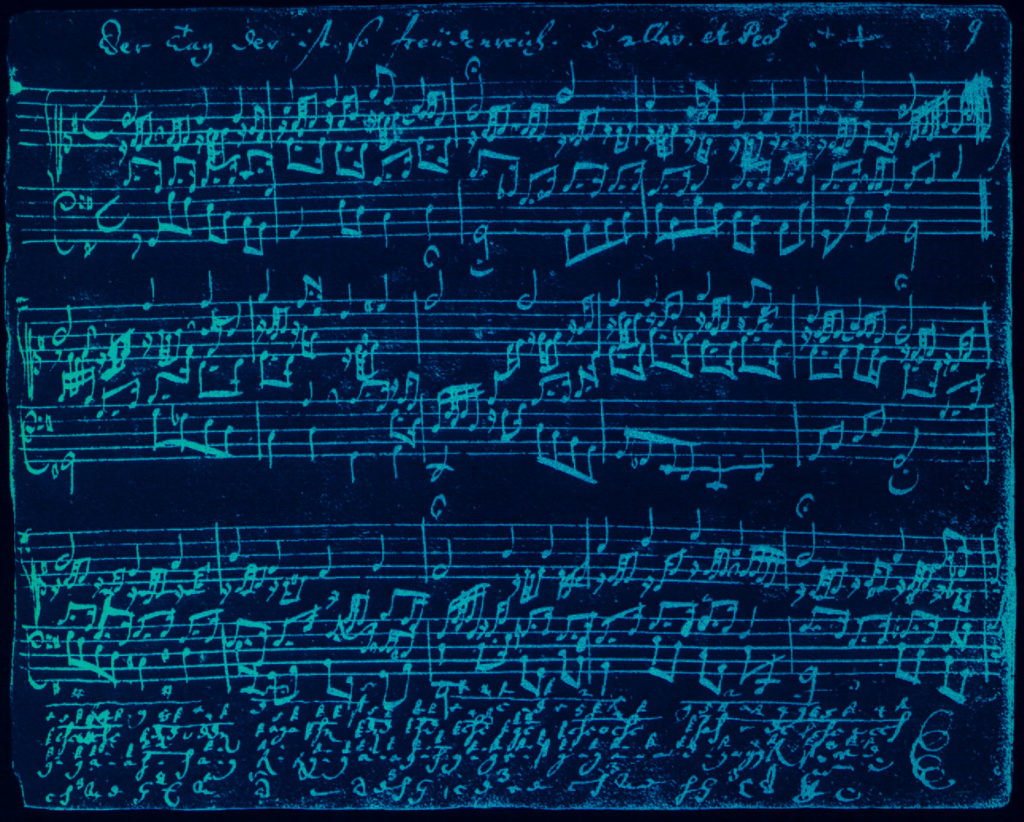
Degree Requirements
The MA in Musicology is for students who are working toward entrance to a Ph.D. program, performing students with academic interests, and students preparing for positions in the music industry. To enter, students normally possess an undergraduate degree in music or its equivalent.
Visit the BU Bulletin for additional information on course requirements, language requirement, master’s thesis, and more.
